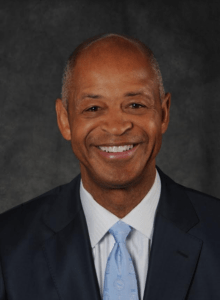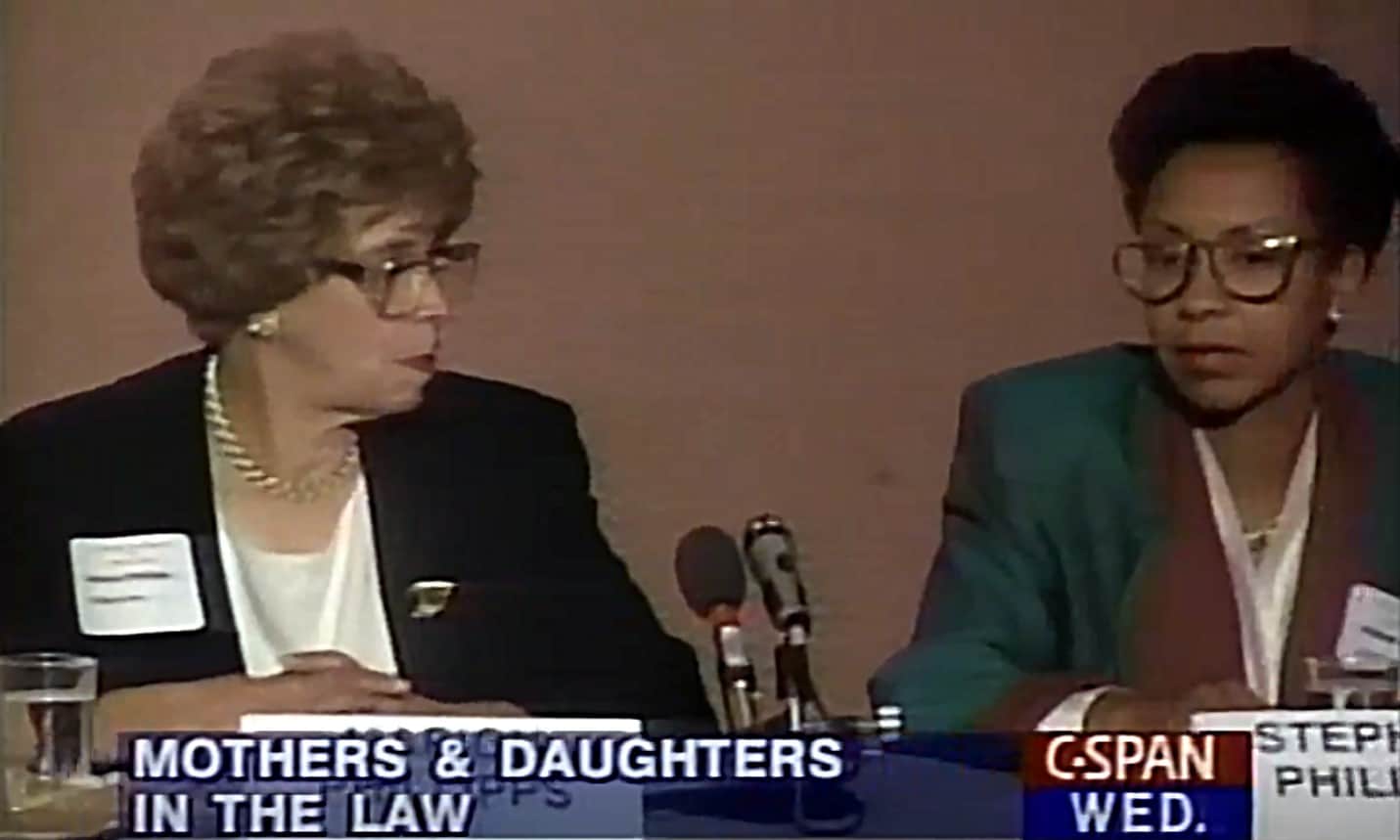 Bill Keyes, President of the Institute for Responsible Citizens, sits down with Beccastone to share how they are developing successful leaders of tomorrow.
Bill Keyes, President of the Institute for Responsible Citizens, sits down with Beccastone to share how they are developing successful leaders of tomorrow.
Q: What is the mission of the Institute for Responsible Citizens (I4RC)?
- A: The Institute for Responsible Citizenship is an intensive leadership program for America’s best and brightest African-American male college students. We bring a select group of high-achieving male college students to Washington, D.C. for two eight-week summers to work in internships, participate in seminars, meet with political, business and community leaders and receive mentoring. Our mission is to prepare young men to be exemplary citizens and leaders. We inspire them to pursue extraordinary career success, not simply for their own benefit, but as a platform from which they can serve others. Service to others is, in our opinion, the essence of responsible citizenship.
Q: Why did you start the I4RC?
A: There were many reasons, but this is one of the most important ones:
I had participated in several programs that helped kids who were struggling socially and academically when I realized that there were very few programs that supported the students who were working hard and doing well. The African American males who were achieving we especially in need of support.
Sadly, our society recognizes and rewards young Black men who excel at basketball and rapping, but ignores young Black men who excel academically. It is my opinion, and probably an economic law, that you get more of what you recognize and reward. Therefore if we want more young men to excel academically, we need to recognize and reward those who are doing so. The Institute is an effort to do that.
Q: How does I4RC help the students?
A: I can honestly say that our scholars and alumni are some of the most brilliant people I have ever met. I can also say that many of these brilliant young men were in desperate need of a support system. The Institute provides that support system.
The first way we help our scholars is by showing them that they are not alone, that there are other young Black men like themselves. Many of the students find that reality liberating.
Second, no matter how successful they are, we set higher expectations for them and push them to work harder. Of our 130 alumni, one is a Rhodes Scholar. We are very, very proud of him. But I am also very proud of the fact that four others were finalists for the Rhodes. More than a dozen of the students were named Phi Beta Kappa. Several of them were valedictorians and student body presidents at schools from Harvard to Hampton. Next fall, our fifth alumnus will enroll at Harvard Law School and our fifth and sixth alumni will enroll at Yale Divinity School. Some of these students would never have dreamed of pursuing these honors or attending these top-ranked graduate programs had it not been for the support they received at the Institute.
Third, we place them in a network of high achievers who provide positive peer pressure. There are all kinds of negative influences that the students have to overcome. Far too many young Black men are defeated by the negative images of themselves that they see on television and even hear in the music they listen to. Many of them are also defeated by the low expectations that many people have of them. We combat those negative influences with positive peer pressure.
Fourth, we expose them to opportunities that they may not know about. Just because a young man has worked really hard and gotten himself into a good college doesn’t mean he knows about all of the various graduate school opportunities or career options that exist. The Institute has introduced many of our scholars to scholarship opportunities, graduate programs, or job opportunities that they have been able to take advantage of.
Fifth, we introduce our scholars to individuals who can be an inspiration to them. It makes a big difference in a young man’s life when he can sit in an office or around a conference table for a few hours with someone like General Colin Powell, Congressman John Lewis, Justice Clarence Thomas, or Senate Chaplain Barry Black. We also introduce them to powerful Black women. Sheila Johnson has been especially inspirational.
Most importantly, we help our scholars by setting very high expectations for them.
Q: Is there a common value or characteristic that successful kids share?
A: Yes. They all have someone in their life who is driving them to be successful. This may be a parent, a grandparent, a teacher, or even a family friend, but someone who has high expectations for them. It is someone who has the authority to stay on their case and make sure they do what they need to do. Sometimes a tough disciplinarian actually gives the young men “cover” so they don’t have to hang out in the streets with their peers.
I think parents are most important, but I want to emphasize that it doesn’t have to be a parent. It can be a teacher. One of our alumni was homeless while he was in high school. And he was completely failing in school. He couldn’t even read in the 10th grade. Late one night, a teacher spotted him on the street. When he realized that the young man was homeless, the teacher took him in. And when he realized that he was failing in school, he built an academic support system around him. Long story short, this young man got into college, was voted class president, and was accepted into an Ivy League graduate school. This is an incredible success story. It’s also an example of another bright young Black man who could have been lost. Had it not been for that one teacher, I’m sure that young man would still be out on the streets, in prison, or even dead. That was the fate of other adults in his family. Today, the Institute is the support system that continues to push him forward. He and one of his Institute classmates followed four other Institute alums at a prestigious divinity school.
Q: What is the value of bringing the students together in Washington, D.C.?
A: One of the things that is great about D.C. is the large number of successful Black people here who can serve as role models for the students. For a young man who wants to be a lawyer, we can introduce him to Black men who are practicing law or serving as judges at every level, from the local circuit courts to the United States Supreme Court. We can introduce them to successful businessmen, pastors of important churches, and many other successful Black people they can emulate.
Also, we are preparing our scholars to make a difference in their communities, in our country, and in the world. D.C. is an ideal place to focus on important issues and develop the skills that are necessary for leadership on all of these levels.
Q: What advice would you give mothers of young men today?
A: Given the fact that so many young Black men are being raised by single mothers and grandmothers today, this is a really important question. Frankly, I would tell them to stop babying their sons. If they want them to be successful men — the kind of men who will be thankful sons, loving husbands, responsible fathers, and difference-makers in the world – they need to make them do the right thing. Tough love may be the only thing that will get them across the finish line. My experience is that boys need tough, structured discipline and they need someone pushing them. The pressure on them to do the wrong thing is tremendous. All around them is pressure to conform to an image that is not in their best interest. Strong mothers have to match that pressure with a different kind of pressure.
While there are other factors involved here, it seems that mothers really push their daughters to be successful. They set high expectations and refuse to accept any excuses. The result is that young Black women are doing amazing things. When I meet the most outstanding Black students on college campuses, they are almost always young women. In fact, in many university Honors programs, Black women outpace Black men as much as 9 to 1! This has a lot to do with expectations.
I tell the Institute scholars on the first day they arrive here that I expect them to be incredibly successful. If they need help, we are here to help them. But we expect success and nothing less. Our communities, our country, our world are depending on it.
For more information about the Institute for Responsible Citizenship, visit its website or contact Mr. William Keyes at wkeyes@i4rc.org.







Share your thoughts